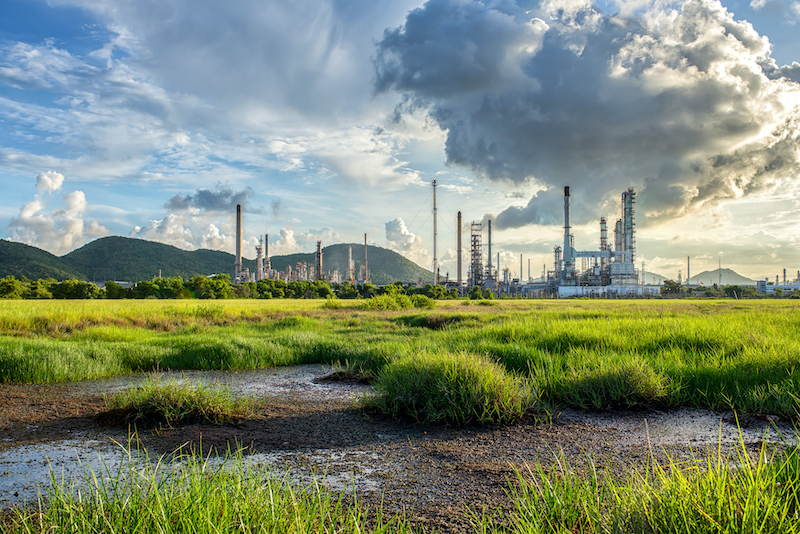Carbon Capture Project Back at Texas Coal Plant After 3-Year Shutdown
(Reuters) — A $1 billion carbon capture utilization and storage project that has been shuttered since May 2020 amid plunging oil prices restarted operations last week, its owner JX Nippon said, giving a second chance to a project meant to show the nascent technology is viable at large scale.
The Petra Nova CCS project, owned by a subsidiary of JX Nippon oil and Gas Exploration, aims to capture 1.4 million tonnes of carbon dioxide per year and is one of the world's largest CCUS projects.
Petra Nova began operating in 2016 at a coal-fired power plant in Texas and shut down less than four years later due to a plunge in oil prices during the COVID-19 pandemic. It restarted on Sept. 5, JX Nippon said this week.
The project had been seen as a major test of efforts to sequester CO2 and store it permanently underground and was cited as a viable example of the technology when the U.S. Environmental Protection Agency proposed new emissions standards for power plants earlier this year.
Petra Nova had received a $190 million grant from the U.S. Department of Energy. It missed targets before shutting in 2020, capturing 3.8 million short tons of CO2 during its first three years, shy of the 4.6 million tons developers had expected.
Petra Nova sent the CP2 about 80 miles (130 km) by pipeline where it was pumped into an aging oilfield to boost output, a technique known as enhanced oil recovery.
Critics of CCS say it could prolong dependence on fossil fuels.
Backers say fossil fuels will be needed for many years as the energy system transitions. "We consider CCS/CCUS to be an effective means to achieve carbon neutrality," JX Nippon said in a statement.
Related News
Related News

- Keystone Oil Pipeline Resumes Operations After Temporary Shutdown
- Freeport LNG Plant Runs Near Zero Consumption for Fifth Day
- Biden Administration Buys Oil for Emergency Reserve Above Target Price
- Mexico Seizes Air Liquide's Hydrogen Plant at Pemex Refinery
- Enbridge to Invest $500 Million in Pipeline Assets, Including Expansion of 850-Mile Gray Oak Pipeline
- Venezuela Proposes Alternative Payment Plan as Weak Bids Surface in Citgo Auction
- Baker Hughes Wins Contract for Huge Aramco Gas Expansion Project
- Enbridge Picks Contractors for Great Lakes Tunnel Project, Securing Line 5 Pipeline Route
- Russia's Gazprom Sees Worst Loss in Decades as European Gas Sales Collapse





Comments